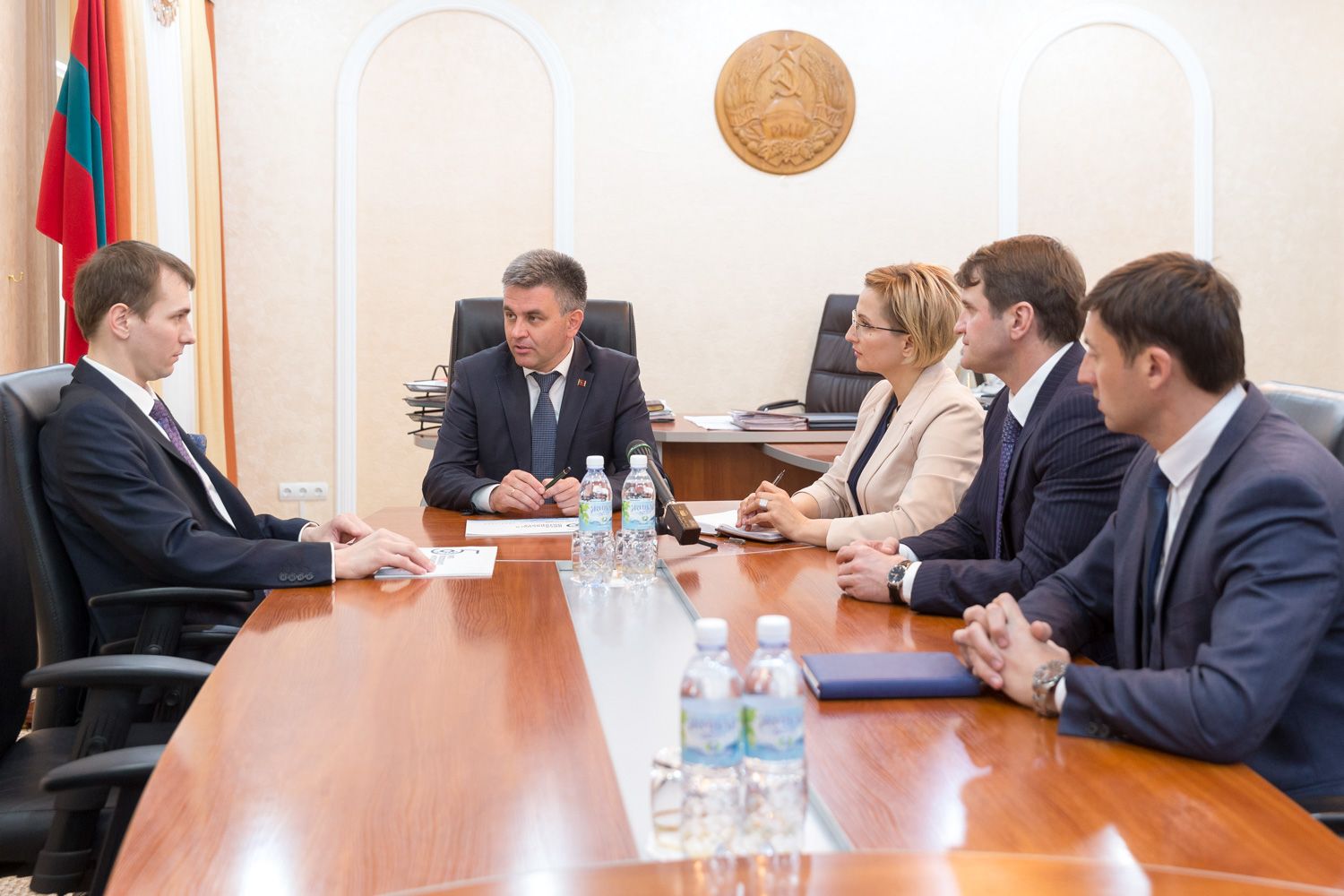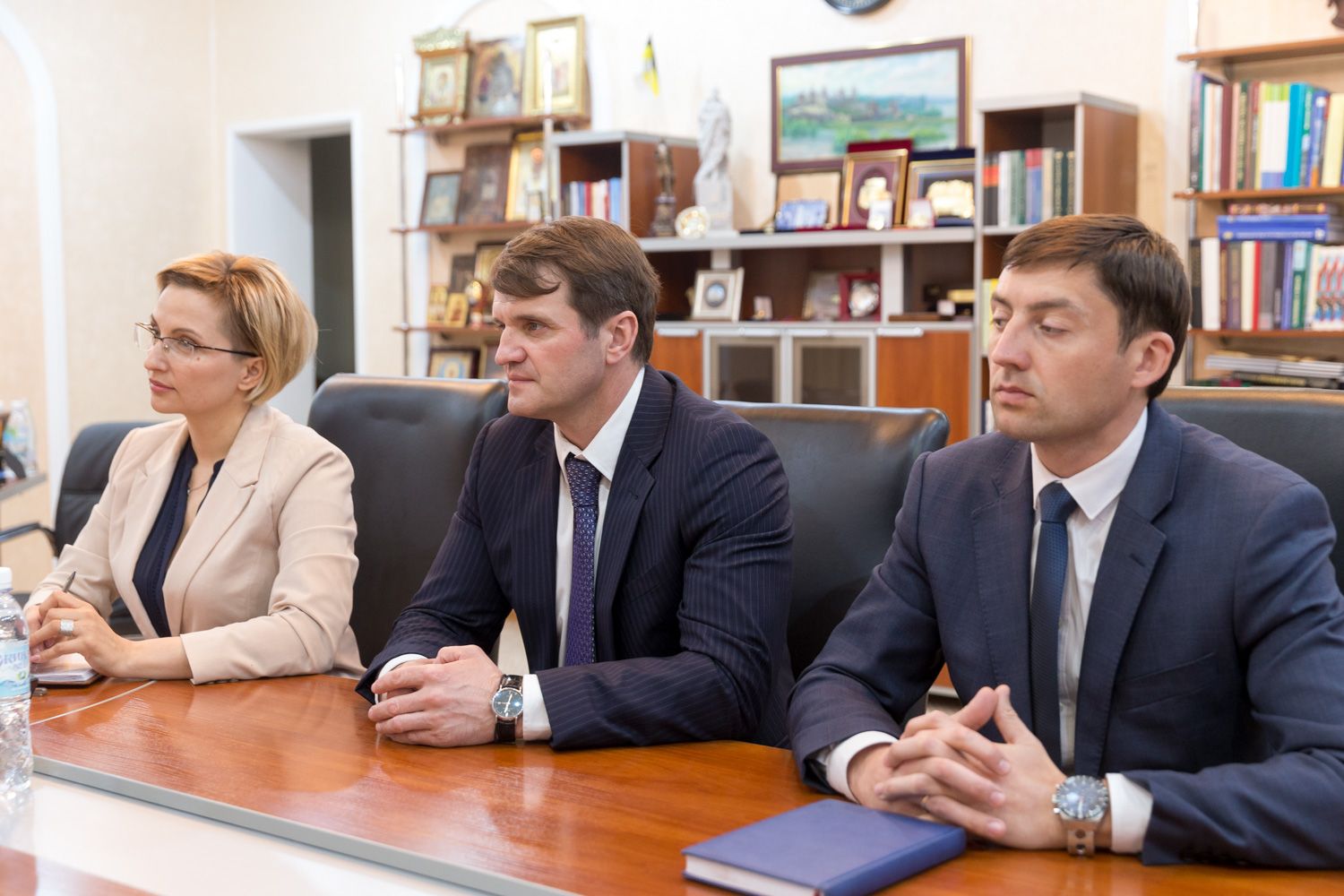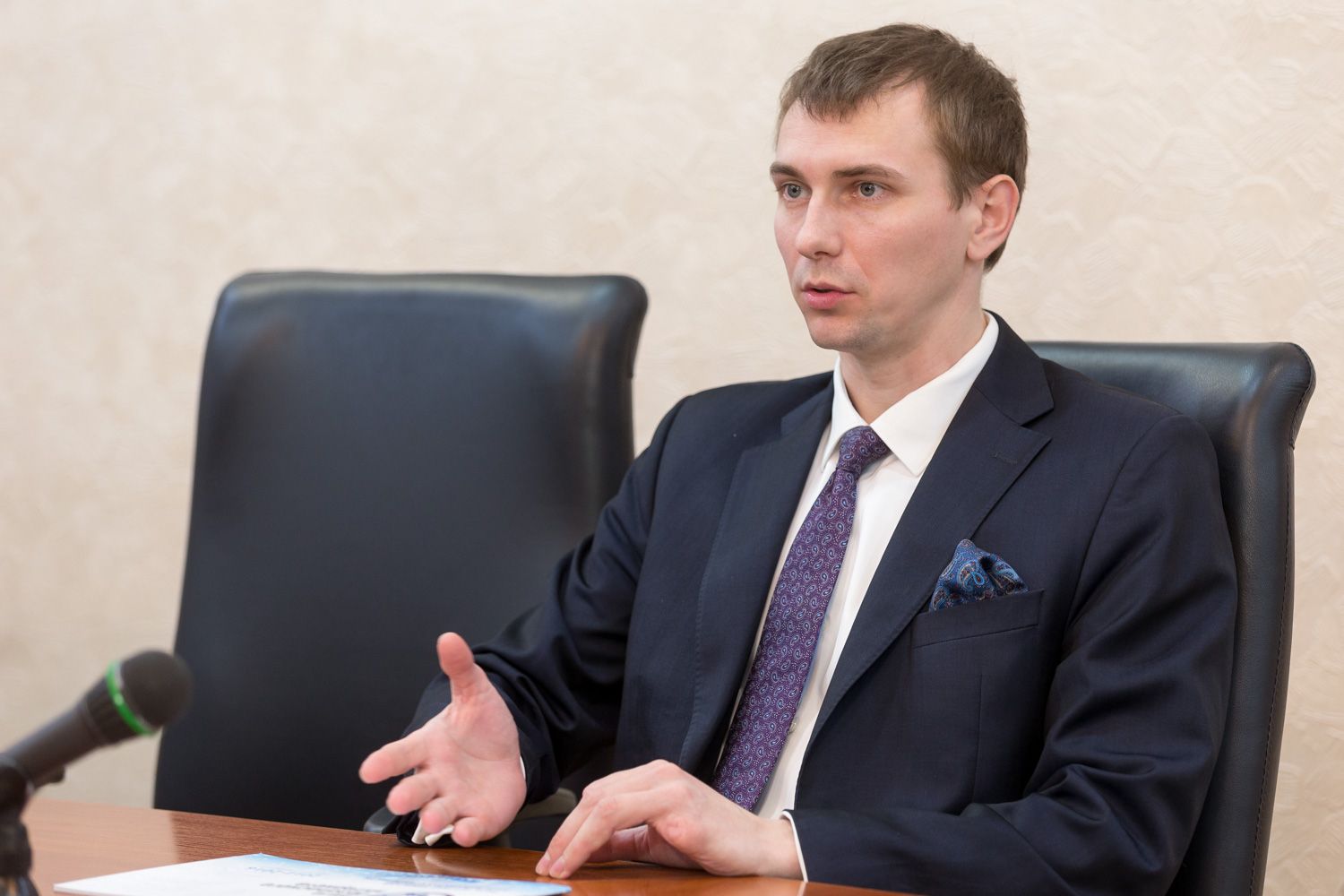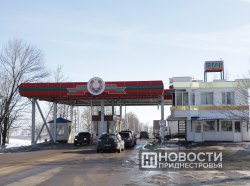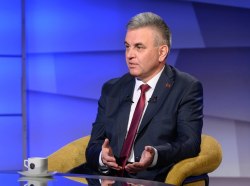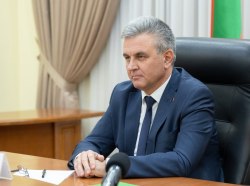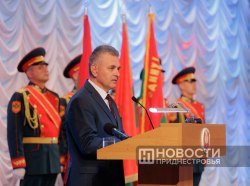Tiraspol, 3 April. /Novosti Pridnestrovya/. The president held a meeting on internet security. Vadin Krasnoselsky involved an executive director of the Russian organisation designed to counter the spread of dangerous content on the World Wide Web in a discussion on the usefulness of preventing measures in the sphere of Internet security. Denis Davydov has led the league since its foundation, chiefly specialising in children's security, the president's press service reports. The organisation operates with the support of Russia's ministry of communications, interior ministry and State Duma committee on family, women and children.
The meeting was also attended by head of the Mass Media Agency Lidiya Kolodka, minister of interior Ruslan Mova, commercial director of CJSC Interdestrcom Igor Karasev.
«The Internet constitutes a real problem today. It has an impact on immature minds. Many crimes are committed through Internet resources. The most flagrant facts are recent incitements to suicide. Unfortunately, such incidents also occurred here. But the Ministry of Interior and the telecommunication operator reacted quickly. The outbreak was put out in Pridnestrovie. Additional criminal liability has been introduced for incitements to suicide through an Internet resource. But the problem exists. It is not always possible to solve it by force. Preventive measures are necessary. The Safe Internet League proposes such measures," said President Krasnoselsky.
He believes that the practice of «parental permission» for access to a website proposed by the league is justified. It should be applied to any potential user under 18.
«We were pioneers in the modernisation of Russian legislation. There are several thousand communication providers in Russia. In 2012, the Russian president signed a law on the register of prohibited websites. Back then we identified three types of dangerous information that should be blocked throughout the country. This includes child pornography, drugs and suicide. Websites containing such information are closed," said Denis Davydov.
He also announced that his organisation had participated in drafting a law protecting children against information harmful to their health and development.
«This law provide for the age-labelling and examination of information products. When a show is broadcast on TV, the icons '6+', '12+', '16+' are displayed to warn the parents that this information is unsafe. Besides, we have stipulated that children should be protected at home (by means of parental controls), at school (through Internet filters), as well as outside their homes and schools. Russian legislation prescribes, for example, that in a public place, for example a cafe, with public access to wi-fi, the Internet should be either safe or unavailable to children. In the latter case, the password should be provided to adult visitors only," the expert noted.
He also informed the audience on the conduct of the national campaign Safe Internet Month. It covers 11 million schoolchildren with the involvement of the parent community. Surveys has shown that only 22% of parents take technical measures to protect their children against Internet outrage.
The participants also discussed various tools for protection against negative information and the prospects of introducing Internet-«bleaching» mechanisms in the Pridnestrovian information space.

